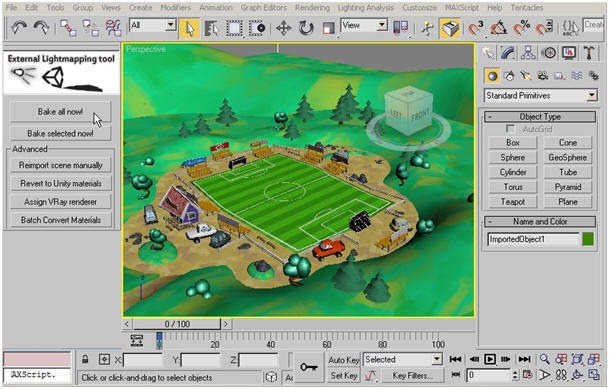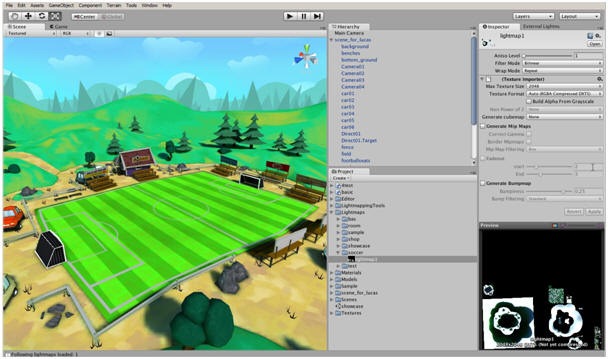We talk to Polish developer and Informatic student
Michal Mandrysz about the creation of his External Lightmapping tool for Unity, a project selected
for this year's
Unity Summer of Code competition.

How would you describe your project to someone who had
never heard of it before?

What is your background and experience game development,
Unity or coding in general?
 A Scene Pre-Light Mapping
A Scene Pre-Light Mapping
What inspired the idea behind your project?

What does your project bring to the table that isn't
available already?
Unity - Summer of Code

How would you describe Unity to someone who has never used
it before?

What originally attracted you to use Unity?

Which platforms do you target with Unity when making
games?

What inspired you to enter Unity's Summer of Code
competition this year?

Would you have created your project without the
competition?

What does being selected as a final project in the Summer
of Code competition mean to you?
 Setting up the lightmapping
Setting up the lightmappingDevelopment - Post Mortem

After you had the original idea, describe the process you
took in prototyping the idea and finally bringing it to completion...

How did you go about testing the project?

What do you feel went well in the project?

What didn't go so well?

What were the issues you had with the FBX importer?

If you were to go back and do your project again, what
would you do differently?

What would you do the same?
 Back to Max for rendering
Back to Max for rendering
Which part of the project did you find the most
interesting or fun?

Which part of the project did you find the least
interesting or fun?

Did you have enough time to complete your project?

Is there anything else you'd like to have added or
spent more time on if you had the time?

Is there any advice you'd like to offer any
developers based on your experience in this project?

Have you ever developed an addon for Unity before?

How did you find the process of creating an addon of
Unity?

What support did you get along the way?
Looking forward...

What do you plan to do next?

Would you enter another Unity Summer of Code
competition?

Do you have any other comments you'd like to make
about Unity, Unity Summer of code, your project or development in general?
 Back to Unity to admire the results
Back to Unity to admire the results
Finally, you mentioned making a game with your friends
- would you like to share any information about it?
Thanks Michal and good luck with your game!







